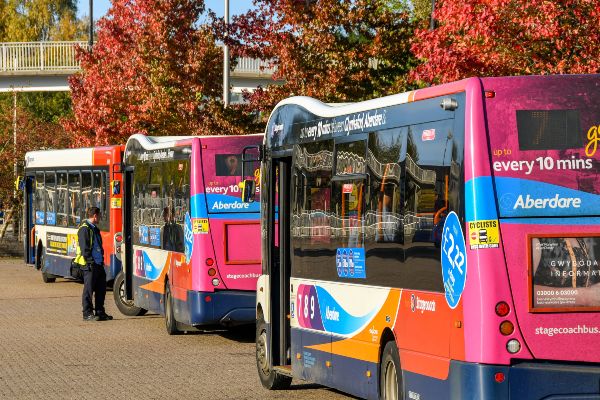
For some, bus scheduling seems like a dark art that is practiced in shadowy corners of the operator’s head office.
Others may assume that algorithms and AI make all the decisions in the misty reaches of the cloud. But which is it? What do schedulers do and why do they do it? To explain, it is easiest to look at the basics.

Building blocks for bus scheduling
We should all be able to agree with the statement that a scheduler must compile the most cost-effective and operable set of timetables, driver duties and rosters possible.
Creating efficient duties is good, but operable duties are what is really required.
A scheduler could ensure that duties pay only the bare minimum and weed out any pay for unproductive time. But that is no good if you lose all the flexibility within the schedule. Is it really efficient to reduce your pay by 15 minutes on paper, only to actually pay two or three hours’ overtime on top?
Another statement is that a scheduler needs to feed a multitude of downstream systems with data.
The most basic example of that is informing allocators of the duties that have been planned. However, in a fast-moving world where data is king, it is usually schedulers who provide data in various formats to more and more downstream systems.
They include ticket machines, real-time information providers, websites and mobile apps, to name but a few. Additionally, the Bus Services Act will soon require more data from every operator – much of which, I am sure, will be administered by the scheduler.
Controlling costs via clever bus scheduling
It could be said that a scheduler controls all major cost centres within an operator.
The scheduler dictates the number of duties a set of timetables requires. That filters through to how many rota lines exist and how many holiday weeks are needed, the number of DCPC days and so on.
If you have a scheduler who consistently schedules more duties than are required, there will obviously be big knock-on effects.
Perhaps less obvious is that the scheduler will also dictate the number of vehicles your company runs. The more that are in use, the more engineers, spare parts and land to house them are required.
It is also worth saying that utilising unsuitable vehicles on certain routes or journeys has the real potential to increase the amount of work your engineers have and the number of vehicles that are needed to meet PVR each morning.
What actually is a bus scheduler’s job?
The three points above outline what a scheduler does. However, none of them explain what the scheduler’s job actually is. Put simply, a scheduler’s role is to keep everyone happy.
That may sound like quite an abstract concept. But when boiled down, the person with responsibility for bus scheduling has the task of keeping the whole business ticking over. That surely works better when everyone is happy.
A good set of schedules can keep all the below satisfied:
- Allocators
- Customers
- Drivers
- Engineers
- Local authorities
- Shareholders
- Traffic Commissioners
The skill of schedulers is in successfully balancing the different needs and wants of every stakeholder invested in the company. Too often, schedulers can be pressured into only satisfying one group of people, which ultimately fails.
An example of that would be trying to keep shareholders happy by reducing paid time and layover time.
That will decrease costs and should increase profitability (on paper at least). But it can also decrease reliability, causing late or missed journeys. That will turn customers away from the service and ultimately leading to shareholders being unhappy as revenue falls.
Give schedulers the right tools
There is, however, one person that the scheduler often does not keep happy. That is, of course, the scheduler.
The responsibility for keeping the scheduler content falls on those who manage the company. They must recognise the enormity of what schedulers are trying to achieve and give them the support they need to do it.
That can be as simple as giving schedulers the tools they need to do the job. It may include computer aids but what is really needed is some help.
If you have multiple depots with multiple changes each year then why put all that pressure on one person?
We should also invest in our schedulers. Keeping everyone happy is a difficult job. Schedulers should be given the time and opportunity to learn their trade. You wouldn’t let a school leaver with no experience do your year-end accounts – so why do it for bus scheduling?
Operators should respect their schedulers
Schedulers have possibly the hardest job of all: Keeping everyone happy.
As an industry we should recognise how difficult the job is and give those who do it the credit they deserve.
We must support those who are in the role by giving schedulers the tools they need and the time to learn their trade. After all, if we keep schedulers happy, they should do the same for everyone else.
The article originally appeared in routeone magazine.





